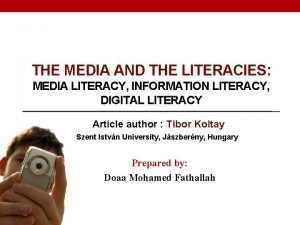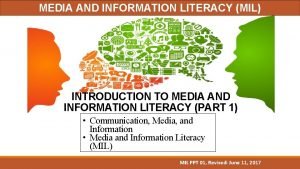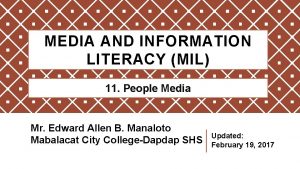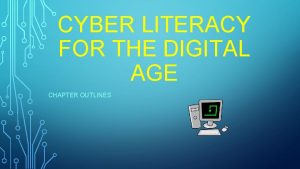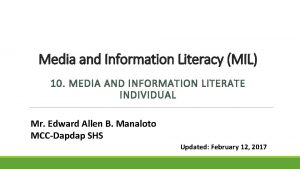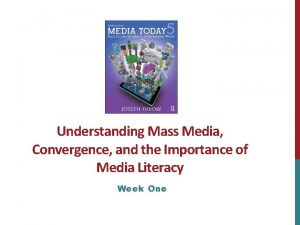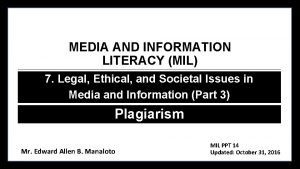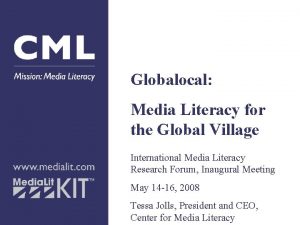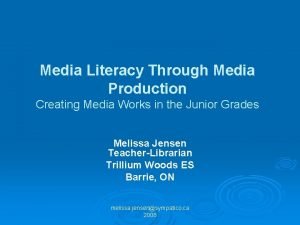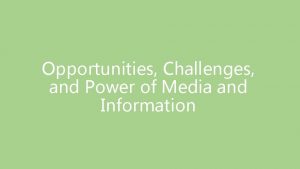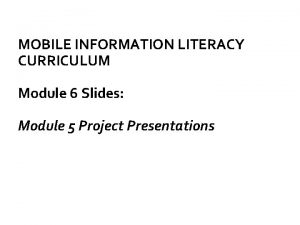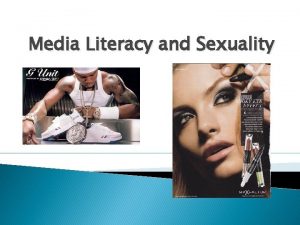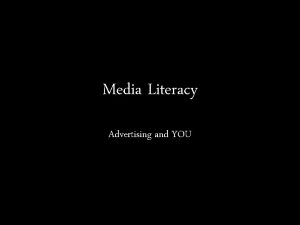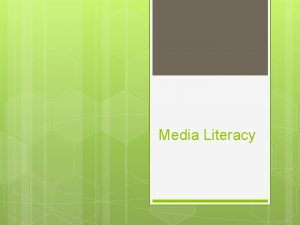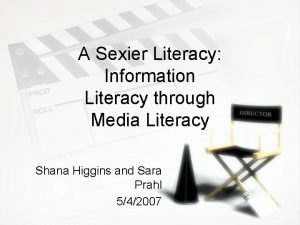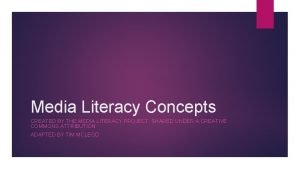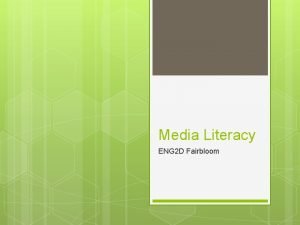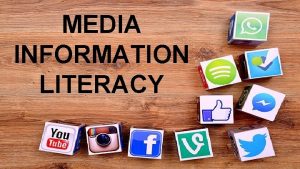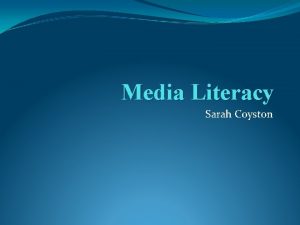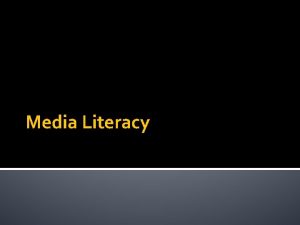MEDIA LITERACY MEDIA LITERACY n Media literacy is












- Slides: 12

MEDIA LITERACY

MEDIA LITERACY n Media literacy is a set of skills that anyone can learn. n Just as literacy is the ability to read and write, media literacy refers to the ability to access, analyze, evaluate and create media messages of all kinds.

MEDIA LITERACY n Media literacy skills can help n • Understand how media messages create meaning n • Identify who created a particular media message n • Recognize what the media maker wants us to believe or do n • Name the "tools of persuasion" used

MEDIA LITERACY n n n Media literacy skills can help • Recognize bias, spin, misinformation and lies • Discover the part of the story that's not being told • Evaluate media messages based on our own experiences, beliefs and values Create and distribute our own media messages • Become advocates for change in our media system

MEDIA LITERACY n Media literacy education helps to develop critical thinking and active participation in our media culture. to give youth and adults greater freedom by empowering them to access, analyze, evaluate, and create media.

n Media Literacy Concepts: The study and practice of media literacy is based on a number of fundamental concepts about media messages, our media system, and the role of media literacy in bringing about change. n Understanding these concepts is an essential first step in media literacy education. n

n Basic concepts focus on how media affect us. n Intermediate concepts examine more closely how we create meaning from media messages. n Advanced concepts examine the interaction of media and society, and the role of media literacy in bringing about change.

n Basic concepts n 1. Media construct our culture. Our society and culture – even our perception of reality - is shaped by the information and images we receive via the media. n today, the most powerful storytellers are television, movies, music, video games, and n the Internet.

n 2. Media messages affect our thoughts, attitudes and actions. n We don’t like to admit it, but all of us are affected by advertising, news, movies, pop music, video games, and other forms of media. n That’s why media are such a powerful cultural force, and why the media industry is such big business.

n 3. Media use “the language of persuasion. ” n All media messages try to persuade us to believe or do something. News, documentary films, and nonfiction books all claim to be telling the truth. n Advertising tries to get us to buy products. they use specific techniques (like flattery, repetition, fear, and humor) we call “the language of persuasion”

n 4. Media construct fantasy worlds. While fantasy can be pleasurable and entertaining, it can also be harmful. Movies, TV shows, and music videos sometimes inspire people to do things that are unwise, antisocial, or even dangerous; at other times, inspire our imagination. n Advertising constructs a fantasy world where all problems can be solved with a purchase n

MEDIA LITERACY
 Venn diagram media information and technology literacy
Venn diagram media information and technology literacy Mil subj
Mil subj What is a characteristic of people as media?
What is a characteristic of people as media? Cyber literacy and digital literacy
Cyber literacy and digital literacy Graphic organizer about media and information literacy
Graphic organizer about media and information literacy Access in media literacy
Access in media literacy A media literate person
A media literate person Slogan about media codes and conventions
Slogan about media codes and conventions The potluck paper
The potluck paper What is media literacy
What is media literacy Poster making about media literacy
Poster making about media literacy What is challenge in media and information
What is challenge in media and information Media and information literacy module 6
Media and information literacy module 6
